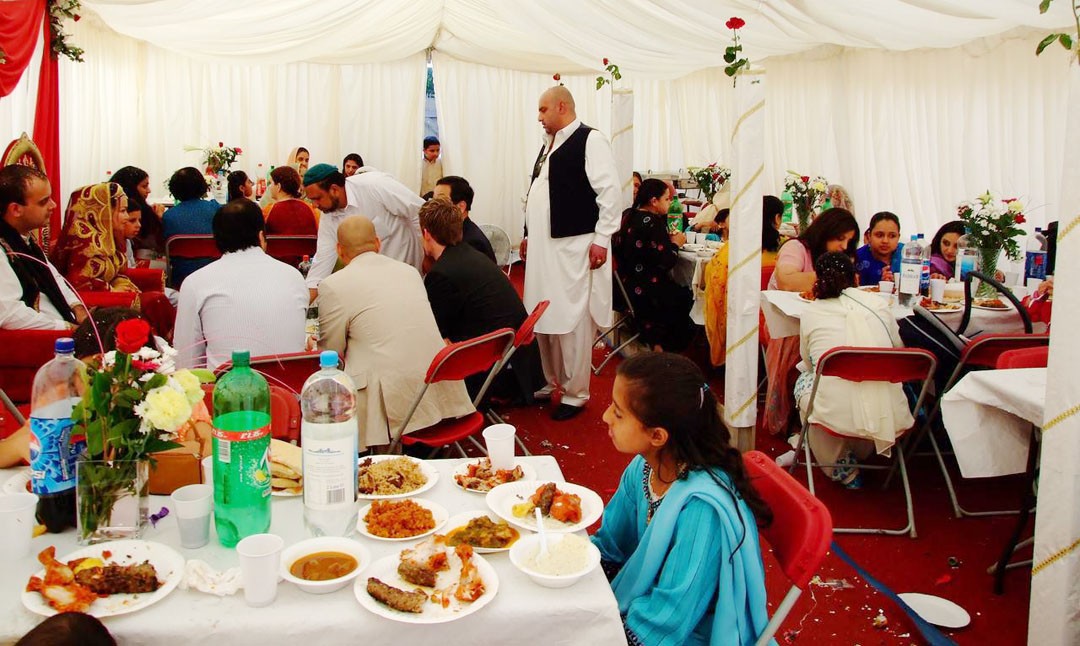
While the common people fear punitive actions for violating the ban on serving more than one dishes at the weddings, the ‘privileged’ lot easily gets away with it

Nothing lightens up the eyes of the guests at a wedding more than the sight of a multi-course meal, especially when they expected to be served a single dish. In Lahore, this would not happen very often but on occasions if one is lucky to be invited by a host who is wealthy and influential enough to ward off the officials trying to intervene.
While the common people fear punitive actions for violating the ban on serving more than one dish at the weddings, the ‘privileged’ lot easily gets away with it.
There are others who do not take the administration head-on and try to find ways to bypass the law. For example, they hold receptions inside their houses, as the Punjab Marriage Functions (Prohibition of Ostentatious Displays and Wasteful Expenses) (Amended) Act, 2006 states that no restrictions "shall apply to the eating of meals within the house by the members of a family celebrating the marriage, and the house guests."
If the houses are not big enough, bigger houses are hired for the purpose or the boundary walls to neighbouring houses are used to create space for guests and the buffet dishes.
There are reservations among people who say the law does not serve the required purpose. Their point is that there is no control on other (extra) expenses incurred on food for guests at the weddings.
Besides, there is no limit to the number of guests invited.
Abid Ali (name changed on request), a private businessman, says he married off his daughter last month. "Her in-laws wanted us to serve mutton curry and mutton pulao [to the guests]. This increased our budget."
Ali says that even though the law, when it was passed for the first time, stated that the number of guests should not exceed 300, "no one bothers now.
"There should be a limit to the number of guests you’re inviting to the wedding and the expenses incurred on food," he suggests.
A caterer, based in Lahore, says that the law is violated by those who can bribe the officials. "It is the responsibility of the enforcement inspectors at respective Town Municipal Authority (TMA) offices to inspect the venues. But most of the times they walk away when their palms are greased."
Sharing his experience, the caterer says that sometimes the clients force "us to handle the town officials on their behalf. If we know someone we oblige, otherwise we refuse."
The caterer also says that under the law, the town administration and the police cannot enter a house but action is taken in case there is a brawl between the parties. For example, he says, police took action against cricket stars Umar Akmal and Wahab Riaz when the latter forced local TV channels not to cover their wedding ceremonies. The TV channels had showed live the law on one dish being flouted.
The Punjab Chief Minister Shahbaz Sharif is said to have taken notice of the issue and asked the concerned officials to act immediately. But the town administration and the police sprang into action only to make a fool of the national heroes. They should not have been touched as the food was being served inside their houses.
Well, the law states that no person owning or running a hotel, a restaurant, a wedding hall, a community centre, or a club as the venue for a marriage ceremony or any caterer shall serve or allow any one to serve the meals or edibles to the people participating in the marriage ceremony except as allowed in the law.
Babar Ali, Deputy Superintendent of Police (DSP), tells TNS that the police raided the wedding parties only when requested by the town administration.
He denies the charge that the police enter private residences if multiple dishes are being served there. This, he says, would itself be a violation of trespassing laws and an attack on the sanctity of a household and the privacy of its inmates.
However, he adds, the police do take action in case the wedding functions continue late into the night or cause nuisance to people living in the vicinity. "Such acts have a legal sanction under general administrative orders issued from time to time to discourage certain activities."
Explaining his point, Babar Ali says the district administration often imposes restrictions under Section 144 which can include holding functions beyond a particular time of the day.
Asif Alam, the proprietor of Paragon Events, an event management company, says it is not necessary that serving multiple dishes at a function shall make it more memorable. "Even if the ‘allowed’ dishes are cooked and served properly, the hosts as well as the guests would have a great evening."
He says that though there is permission to serve one dish, technically the number of allowed dishes is five or six including rice, curry, bread, beverage, tea and dessert.
Many people use the ban as an excuse to cut their expenses drastically, Alam says.